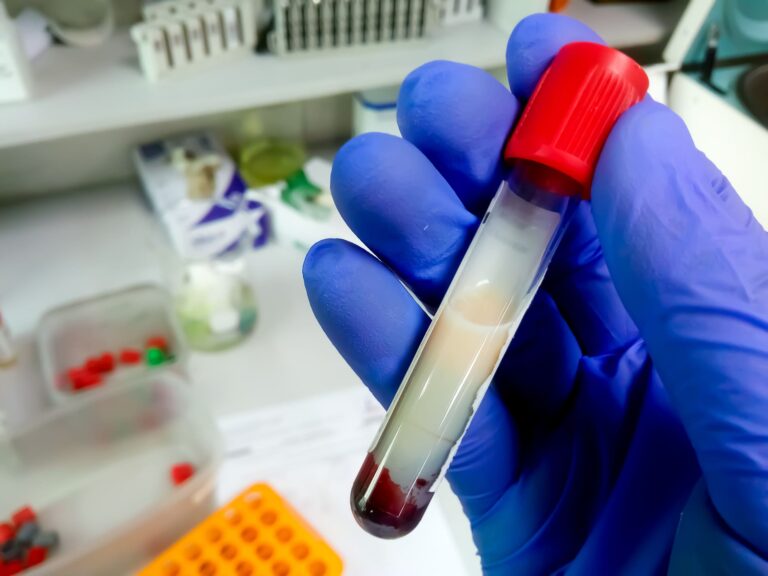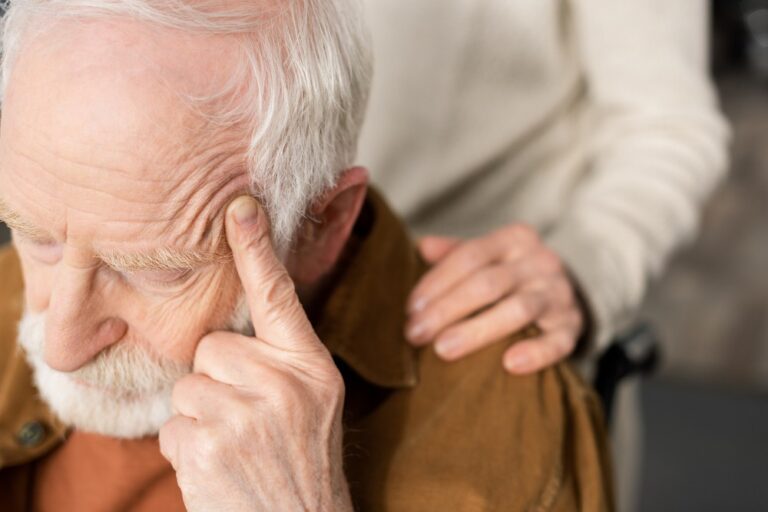Pneumonia in the elderly has become an alarming threat in today’s society. Today, it represents one of the main causes of mortality in this demographic group, therefore, its early recognition is crucial to minimize the risk.
What is pneumonia?
Pneumonia is an infectious disease that mainly affects the lungs. It is caused by the invasion of various microorganisms such as bacteria, viruses and, rarely, fungi. These pathogens inflame the lung alveoli, the air sacs responsible for gas exchange.
As a result, breathing becomes difficult, and the body receives less oxygen than it needs to function properly.
Types of pneumonia
There are several types of pneumonia, among which the following stand out:
Bacterial pneumonia
This type of pneumonia is the most common and is usually caused by the bacteria Streptococcus pneumoniae. The bacteria invade the lungs and cause an inflammatory response that leads to pneumonia symptoms.
Viral pneumonia
It is often caused by viruses such as influenza and the new coronavirus (COVID-19). Although the symptoms are similar to those of bacterial pneumonia, treatments may be different due to the nature of the pathogen.
Aspiration Pneumonia
It occurs when food, liquids, saliva, or vomit are inhaled into the lungs. It is more common in people with problems swallowing or coughing, such as the elderly.
Symptoms of pneumonia in the elderly
Symptoms of pneumonia in the elderly can range from mild to severe. Below are the most common symptoms of pneumonia in the elderly:
- Persistent cough: It can start as a dry cough and then become a productive cough, that is, with the expulsion of phlegm or mucus.
- Fever: Elderly people may experience a high fever or a slightly elevated temperature. However, some may have normal or low body temperatures, which can make the disease difficult to detect.
- Shortness of breath: Pneumonia can cause difficulty breathing, especially during physical activity or even at rest.
- Chest pain: Some elderly people may experience chest pain or discomfort when breathing deeply or coughing.
- Generalized weakness: Pneumonia can cause a feeling of weakness or fatigue in the elderly. They may feel more tired than usual and have difficulty doing daily activities.
- Confusion: In some cases, pneumonia can affect the mental status of the elderly, causing confusion or changes in alertness.
- Loss of appetite: Elderly people with pneumonia may experience a decreased appetite, which can lead to unwanted weight loss.
If an elderly person experiences any of these symptoms, it is important to seek medical attention immediately. The doctor will perform a physical examination and may order additional tests, such as chest x-rays or blood tests, to confirm the diagnosis of pneumonia.
Appropriate treatment, which may include medications and supportive care, will be recommended by the doctor based on the individual evaluation of each case.
Remember that prevention is key, so it is recommended that the elderly be vaccinated against flu and pneumonia, follow a healthy diet, maintain good personal hygiene and avoid contact with sick people.
Causes of pneumonia
As you already know, pneumonia is a disease that affects the lungs and the truth is that it can be caused by different factors. But don’t worry! Below, we will mention some of the most common causes of pneumonia:
- Bacterial infections: Bacteria, such as Streptococcus pneumoniae, Haemophilus influenzae, and Legionella pneumophila, can cause pneumonia. These bacteria can enter the lungs through inhalation of droplets of saliva or infected mucus present in the air.
- Viral infections: Some viruses, such as the flu virus (influenza), respiratory syncytial virus (RSV), and coronavirus, can also cause pneumonia. These viruses spread from person to person through small particles of saliva or mucus that are released when coughing or sneezing.
- Fungal infections: Certain fungi, such as Pneumocystis jirovecii, can cause pneumonia in people with weakened immune systems, such as those with HIV/AIDS.
- Inhalation of toxic substances: Exposure to certain toxic substances, such as chemicals or cigarette smoke, can damage the lungs and increase the risk of developing pneumonia.
- Aspiration: Aspiration of fluids, food, or vomit can lead to inflammation and infection of the lungs, resulting in pneumonia. This is more common in people with swallowing problems, such as the elderly or those with neuromuscular diseases.
- Risk factors: Some people are at higher risk of developing pneumonia, such as smokers, people with chronic illnesses (such as diabetes or heart disease), people over 65, and those with a weakened immune system.
It is important to note that pneumonia can be largely prevented by good hygiene practices, such as washing your hands frequently, avoiding contact with sick people, keeping vaccines up to date (especially the pneumococcal vaccine and the flu vaccine), and stopping smoking.






